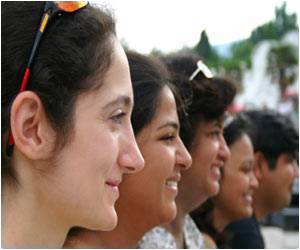Roughly 153 million women in the world do not have sufficient access to family planning services. More than one in five of these women live in India.

TOP INSIGHT
Indian family planning programs often don't reach out to young wives until after they reach family size goals, and males predominantly control the access and use of contraceptives.
Previous studies have indicated Indian family planning programs often don't reach out to young wives until after they reach family size goals, that males predominantly control access to and use of contraceptives and that early, unintended pregnancies contribute to ongoing high rates of infant mortality on the subcontinent.
An international team of scientists conducted a two-armed randomized controlled trial of 1,081 couples living in rural India. Roughly half of the participants participated in CHARM, a family planning program in which both husband and wife receive counseling intervention, both as individuals and as a couple. The other half consisted of similar couples who received no family planning counseling. The study lasted 18 months, with follow-ups at the midway and end points.
The researchers found that women in the CHARM cohort were more likely to have contraceptive communication at the 9-month follow up and use modern contraceptives throughout than their control group peers. Men in the CHARM cohort were less likely than controls to report attitudes accepting of intimate partner violence and they were less likely to be sexually violent or coercive with wives. The study's first author, Anita Raj, PhD, director of the Center on Gender Equity and Health at UC San Diego School of Medicine, said it was the first study to show a significant impact on reducing risk for sexual violence in married couples. There was no significant effect on pregnancy rates in either group.
"These findings demonstrate that including men in gender equity-focused family planning counseling not only can support better contraceptive communication and use in married couples, it can support prevention of marital sexual violence," said Raj. "As the Indian government broadens it basket of contraceptive options and reach, it may benefit from gender equity and male inclusive models of family planning, such as the CHARM program, to better support its family planning goals."
Source-Newswise
 MEDINDIA
MEDINDIA



 Email
Email





